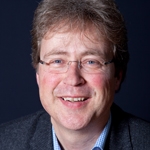


Institute of Formal and Applied Linguistics
Charles University, Czech Republic
Faculty of Mathematics and Physics
Coherence relations and connectives: on cognitive categories, cross-linguistic comparison and discourse annotation
People communicate through discourse. We talk to each other, we read the newspaper or interact on social media, and in all these contexts we use discourse. Constructing coherence relations between utterances is a crucial part of discourse processing. Understanding a discourse includes the inference of coherence relations between utterances, such as Cause-Consequence, Temporal Sequence or Contrast. Languages have specific devices to express such relations: Connectives like because, therefore and however, but also lexical cue phrases like As a result, The problem is, or To the contrary.
In this talk, I will outline a Cognitive approach to Coherence relations (CCR) and show how this approach is corroborated with empirical research, by looking at different types of converging evidence: cross-linguistic analyses of connective use, as well as acquisition data and results from studies on discourse processing and representation.
For instance, languages of the world provide their speakers with means to indicate causal relationships. Causal relations can be expressed by connectives and lexical cue phrases, such as because, since, so and As a result. Striving for converging evidence, we may ask about these phenomena: What is the system behind the use of such connectives in languages like English, French, Dutch and German, or Mandarin Chinese? How can we describe these systems in a cognitively plausible way? How do children acquire this connective system? And what is the role of these causal relations and connectives in discourse processing? Based on the results, we are able to identify salient categorizing principles.
Finally, we will discuss the implications of such cognitive categories for discourse annotation. In recent years, we have seen how corpora of language use are annotated at the level of coherence relations. Excellent but different annotation systems exist, such as the Penn Discourse Treebank (PDTB) and Rhetorical Structure Theory (RST). So, the question is: are cognitive insights useful for such discourse annotation systems? We will argue that our approach identifies unifying dimensions, will lead to more systematicity and is likely to improve existing relation definitions.
Ted Sanders is full professor of Dutch language use and discourse studies at the Department of Languages, Literature and Communication and the Utrecht institute of Linguistics at Utrecht University, The Netherlands. He obtained his PhD in 1992 from Tilburg University. Ted Sanders has worked on a cognitive theory that accounts for the relationship between the structure of discourse as a linguistic object, its mental representation, and the cognitive processes of production and understanding. Striving for an interdisciplinary approach, he combines cognitive linguistics and text linguistics with corpus studies and the psycholinguistics of discourse processing and language acquisition. Together with many co-workers, he was involved in a wide variety of studies on these topics ranging from experimental studies on text processing to corpus-analytical work on the meaning and use of connectives in various languages. Furthermore, he has a strong interest in communication through comprehensible texts. He published widely on these topics, in journals like Discourse Processes, Language and Cognitive Processes, Linguistics, Journal of Child Language, Journal of Educational Psychology, and Journal of Pragmatics, and co-edited book volumes on Text representation: Linguistic and psycholinguistic approaches (Benjamins, 2001) and Causal categories in discourse and cognition (Mouton de Gruyter, 2009). Ted Sanders is on the board of several journals, and is a workgroup-leader in the European COST-project TextLink. He received many grants for his research, including a Vici-grant from the Netherlands Organization for Scientific Research NWO. He supervised 15 ph.d.-students. He was on the Governing Board of the Society for Text and Discourse, which he chaired from 2010—2013. He was the Head of the Department of Languages, Literature and Communication (2011-2016) and currently serves as Vice-Dean of the Utrecht Faculty of Humanities.
